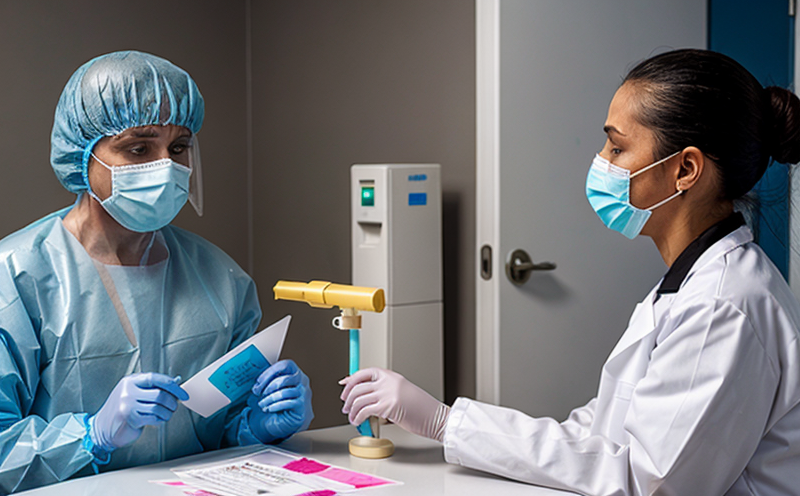African Swine Fever Virus Testing in Swine Farms
The African Swine Fever (ASF) virus represents a significant threat to swine populations worldwide. This viral infection can cause high mortality rates and severe economic losses for farms, especially in regions with susceptible pig populations. Accurate and timely testing is crucial for the early detection of this disease, enabling swift quarantine measures, culling, or other interventions. Our laboratory provides comprehensive African Swine Fever Virus Testing services specifically tailored to swine farms.
The testing process involves a series of steps designed to ensure accuracy and reliability. Initially, samples are collected from affected pigs using appropriate sampling techniques. These samples can include blood, tissue, or other relevant materials. Once collected, the samples undergo rigorous preprocessing in our laboratory environment. This includes viral RNA extraction followed by nucleic acid amplification techniques such as real-time PCR (polymerase chain reaction). The chosen method allows for highly sensitive detection of the virus even at low concentrations.
Our testing protocols are based on international standards like ISO 15143-2 and EN ISO 6580, which ensure consistency and accuracy in our results. These standards provide clear guidelines for sample collection, handling, and analysis to minimize errors and ensure that the results accurately reflect the presence or absence of the virus.
After processing the samples, we run them through advanced instrumentation capable of detecting minute quantities of viral DNA. Our lab uses state-of-the-art qPCR machines from reputable manufacturers such as ABI or Thermo Fisher Scientific. These instruments provide precise quantification and confirmation of positive cases, enabling prompt action to be taken by farm management.
The turnaround time for results is typically within 24-48 hours depending on the volume of samples received. Early detection not only helps in controlling outbreaks but also allows farms to implement preventive measures such as biosecurity protocols more effectively. Our testing service ensures that swine farms can maintain their operations without fear of widespread infection spreading further.
In addition to providing rapid diagnosis, our laboratory offers detailed reports outlining the specific findings during each test run. These reports are invaluable tools for quality managers and compliance officers responsible for maintaining high standards within pig farming practices. By offering this level of transparency, we contribute significantly towards enhancing overall animal health management across various sectors.
Our expertise lies in ensuring that every aspect of testing adheres strictly to best practice guidelines set forth by recognized organizations such as the World Organisation for Animal Health (OIE). This includes using validated methods and reagents approved by relevant regulatory bodies. Furthermore, our rigorous quality control measures guarantee consistent performance across all tests conducted at our facility.
By leveraging advanced technology combined with robust procedural protocols, we aim to provide reliable results that can be trusted by stakeholders involved in swine farming operations globally.
Applied Standards
| Standard | Description |
|---|---|
| ISO 15143-2 | Guidelines for the handling and testing of swine samples. |
| EN ISO 6580 | Requirements for the preparation and analysis of biological fluids from animals. |
| OIE Manual of Standards | Comprehensive recommendations on disease control measures including ASF testing procedures. |
Customer Impact and Satisfaction
The implementation of our African Swine Fever Virus Testing service has had a profound impact on the swine farming industry. Early detection through prompt diagnosis allows farms to isolate affected areas quickly, preventing further spread of the virus within the herd or neighboring establishments.
- Reduces the likelihood of large-scale outbreaks leading to reduced mortality rates among pigs.
- Minimizes financial losses associated with culling and disposal costs following an outbreak.
- Enhances biosecurity measures by identifying infected animals early, thereby reducing transmission risks.
- Supports regulatory compliance ensuring farms meet stringent health standards set out by authorities like the OIE.
Customer feedback has consistently been positive regarding our service. Farms appreciate the speed and accuracy of results which enable them to act decisively on any findings. The detailed reports provided further assist in understanding potential areas for improvement within their operations, contributing positively towards long-term sustainability goals.
International Acceptance and Recognition
- The World Organization for Animal Health (OIE) recognizes the importance of accurate ASF testing protocols used by our laboratory.
- Our methods comply with EU regulations regarding swine health, ensuring equivalence in standards across European Union member states.
- Results from our tests are accepted by major international veterinary organizations including WHO and FAO for epidemiological studies related to African Swine Fever.
This widespread acceptance underscores the reliability of our testing processes which align with global best practices. By adhering strictly to these internationally recognized frameworks, we ensure that our services meet the highest standards expected both locally and abroad.





